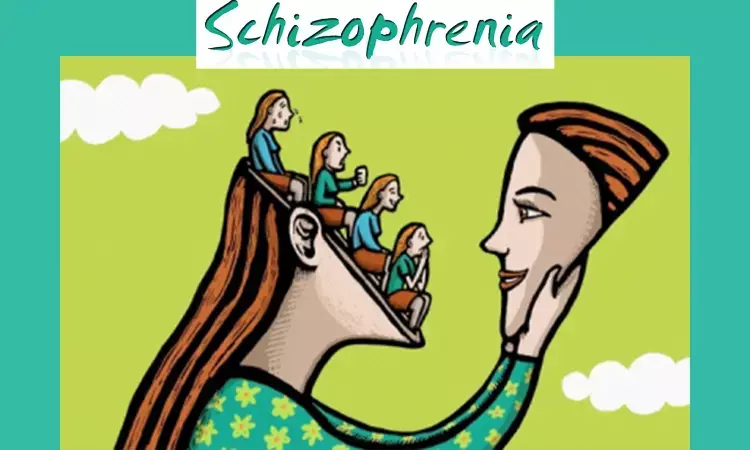- Home
- Medical news & Guidelines
- Anesthesiology
- Cardiology and CTVS
- Critical Care
- Dentistry
- Dermatology
- Diabetes and Endocrinology
- ENT
- Gastroenterology
- Medicine
- Nephrology
- Neurology
- Obstretics-Gynaecology
- Oncology
- Ophthalmology
- Orthopaedics
- Pediatrics-Neonatology
- Psychiatry
- Pulmonology
- Radiology
- Surgery
- Urology
- Laboratory Medicine
- Diet
- Nursing
- Paramedical
- Physiotherapy
- Health news
- Fact Check
- Bone Health Fact Check
- Brain Health Fact Check
- Cancer Related Fact Check
- Child Care Fact Check
- Dental and oral health fact check
- Diabetes and metabolic health fact check
- Diet and Nutrition Fact Check
- Eye and ENT Care Fact Check
- Fitness fact check
- Gut health fact check
- Heart health fact check
- Kidney health fact check
- Medical education fact check
- Men's health fact check
- Respiratory fact check
- Skin and hair care fact check
- Vaccine and Immunization fact check
- Women's health fact check
- AYUSH
- State News
- Andaman and Nicobar Islands
- Andhra Pradesh
- Arunachal Pradesh
- Assam
- Bihar
- Chandigarh
- Chattisgarh
- Dadra and Nagar Haveli
- Daman and Diu
- Delhi
- Goa
- Gujarat
- Haryana
- Himachal Pradesh
- Jammu & Kashmir
- Jharkhand
- Karnataka
- Kerala
- Ladakh
- Lakshadweep
- Madhya Pradesh
- Maharashtra
- Manipur
- Meghalaya
- Mizoram
- Nagaland
- Odisha
- Puducherry
- Punjab
- Rajasthan
- Sikkim
- Tamil Nadu
- Telangana
- Tripura
- Uttar Pradesh
- Uttrakhand
- West Bengal
- Medical Education
- Industry
Once-daily Emraclidine novel and safe treatment of Schizophrenia: LANCET

U.S.A: Researchers from the U.S.A found that Emraclidine is a safe drug as a once-daily treatment for schizophrenia and does not need any drug titration. The trial results were published in the journal The Lancet.
Schizophrenia is a most common, severe mental health illness encountered by clinicians regularly. Emraclidine is a novel, brain-penetrant, highly selective M4 receptor-positive allosteric modulator in development for the treatment of schizophrenia. Prof John H Krystal et al aimed to evaluate the safety and tolerability of multiple ascending doses of Emraclidine in patients with schizophrenia.
A two-part, randomized, phase 1b trial was conducted in the USA as per the Diagnostic and Statistical Manual of Mental Disorders 5th edition, as confirmed by the Mini International Neuropsychiatric Interview. Eligible participants were aged 18–50 years (part A) or 18–55 years (part B) with a primary diagnosis of schizophrenia and extrapyramidal symptom assessments indicating normal to mild symptoms at screening were taken into the trial. The safety and tolerability of emraclidine were evaluated by part A in five cohorts of participants with stable schizophrenia who received ascending oral doses of emraclidine 5–40 mg (40 mg was administered as 20 mg twice daily) or placebo at a single US site. Part B was a double-blind, randomized, placebo-controlled study that enrolled adults with acute schizophrenia across five US sites. Participants from part B were randomly assigned (1:1:1) to receive emraclidine 30 mg once daily, emraclidine 20 mg twice daily, or a placebo for 6 weeks (doses established in part A). The primary endpoint was assessing the safety and tolerability, of the participants who received at least one dose of emraclidine or placebo.
Key findings:
- Nearly 118 patients were assessed for eligibility and 49 were randomly assigned across five cohorts in part A between Sept 23, 2019, and Sept 17, 2020.
- Out of the 44 participants who completed the study, 36 received emraclidine, and eight received a placebo.
- The two highest doses tested were selected for part B.
- Out of the 148 patients who were assessed for eligibility, 81 were randomly assigned to emraclidine 30 mg once daily (n=27), emraclidine 20 mg twice daily (n=27), or placebo (n=27) in part B between Oct 12, 2020, and May 7, 2021.
- Incidence of adverse events, clinical assessments, and weight changes were similar across groups.
| Incidence of AEs | ||
| Emraclidine 30 mg OD | Emraclidine 20 mg BID | Placebo |
| 14 [52%] of 27 | 15 [56%] of 27 | 14 [52%] of 27 |
- About 15 [28%] of 54 participants in the emraclidine groups and seven [26%] of 27 in the placebo group reported headaches as the most common adverse event.
- During treatment initiation modest, transient increases in blood pressure and heart rate were observed in the emraclidine groups that diminished over time and were not considered clinically meaningful by week 6.
Thus, emraclidine has a favorite side-effect profile and is safe as a once-daily treatment for schizophrenia without the need for titration.
Further reading: Krystal JH, Kane JM, Correll CU, et al. Emraclidine, a novel positive allosteric modulator of cholinergic M4 receptors, for the treatment of schizophrenia: a two-part, randomised, double-blind, placebo-controlled, phase 1b trial. Lancet. 2023;400(10369):2210-2220. doi: 10.1016/S0140-6736(22)01990-0
BDS, MDS
Dr.Niharika Harsha B (BDS,MDS) completed her BDS from Govt Dental College, Hyderabad and MDS from Dr.NTR University of health sciences(Now Kaloji Rao University). She has 4 years of private dental practice and worked for 2 years as Consultant Oral Radiologist at a Dental Imaging Centre in Hyderabad. She worked as Research Assistant and scientific writer in the development of Oral Anti cancer screening device with her seniors. She has a deep intriguing wish in writing highly engaging, captivating and informative medical content for a wider audience. She can be contacted at editorial@medicaldialogues.in.
Dr Kamal Kant Kohli-MBBS, DTCD- a chest specialist with more than 30 years of practice and a flair for writing clinical articles, Dr Kamal Kant Kohli joined Medical Dialogues as a Chief Editor of Medical News. Besides writing articles, as an editor, he proofreads and verifies all the medical content published on Medical Dialogues including those coming from journals, studies,medical conferences,guidelines etc. Email: drkohli@medicaldialogues.in. Contact no. 011-43720751




